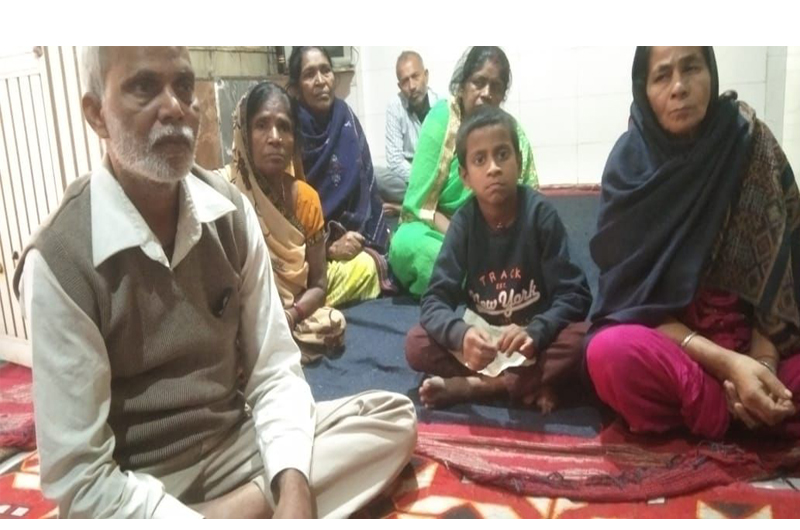Bharat Dogra hears first-hand the woes of the residents of a workers’ colony who stare at a dismal future
It was about 32 years back that a hutment colony in the upmarket Prashant Vihar area of Delhi was demolished. The evicted people were able to get alternative plots, albeit tiny 10 x 8 ft ones, not too far away, after a great struggle, with the help of Nirmana, an organisation of construction workers.
The beneficiaries worked hard to build homes on these handkerchief-sized plots, but a visit to the area shows that they are now a disheartened lot. Three decades on, they have no proper allotment papers, no sewerage system, no potable water supply. They have to use the often dirty public toilets some distance away and make do with the inadequate supply by tankers. Even this water is not accessible to all households, and those families have to walk a considerable distance to fetch clean drinking water, facing down objections from people living in those areas. The poor sewage system results in waste water spilling out of the drains and collecting on the roads. Even in the dry month of November, several roads in the area are waterlogged.
Many people living here had been in the forefront of post-eviction struggle, but they, too, are unable to get welfare benefits. One of them, Mahendra, is now eligible for a pension, but though he has submitted all the necessary papers, he is yet to receive any money.
Ramrati Devi was getting a pension under a different scheme, but it stopped suddenly and her numerous applications have not yielded any result. Sheela, an elderly lady who had participated in several struggles in her younger days, has not been able to draw the food grain ration of late because of biometrics-related problems. Many workers report issues with their labour cards and Aadhaar cards. In fact, paperwork is something they spend a lot of time trying to get right, but even when they achieve this, they rarely get the promised benefits because, as they’re told, the system is ‘still being perfected’.
Adding insult to injury is the pollution-related ban on their work. Ram Vilas, one of those affected, says, “I do understand that demolition work results in a lot of dust. But there are so many other branches of our work – like plumbing, carpentry, masonry, painting and whitewashing – which are not polluting.” He cannot understand why the ban is being so widely enforced, saying it is proving very costly for workers.
On the whole, employment opportunities have decreased in recent times and wages have been low, particularly in the context of inflationary trends. The workers are understandably demoralised when they are unable to meet basic needs despite being willing to work hard. Linking the poor and underemployed people of such colonies to a big, well-planned programme of urban regeneration and greening – in other words, linking the untapped potential of the people withthe unmet needs of the city – may be the answer.
(The writer is a senior freelance journalist and author who has been associated with several social movements and initiatives. He lives in New Delhi.)



 from Webdoux
from Webdoux